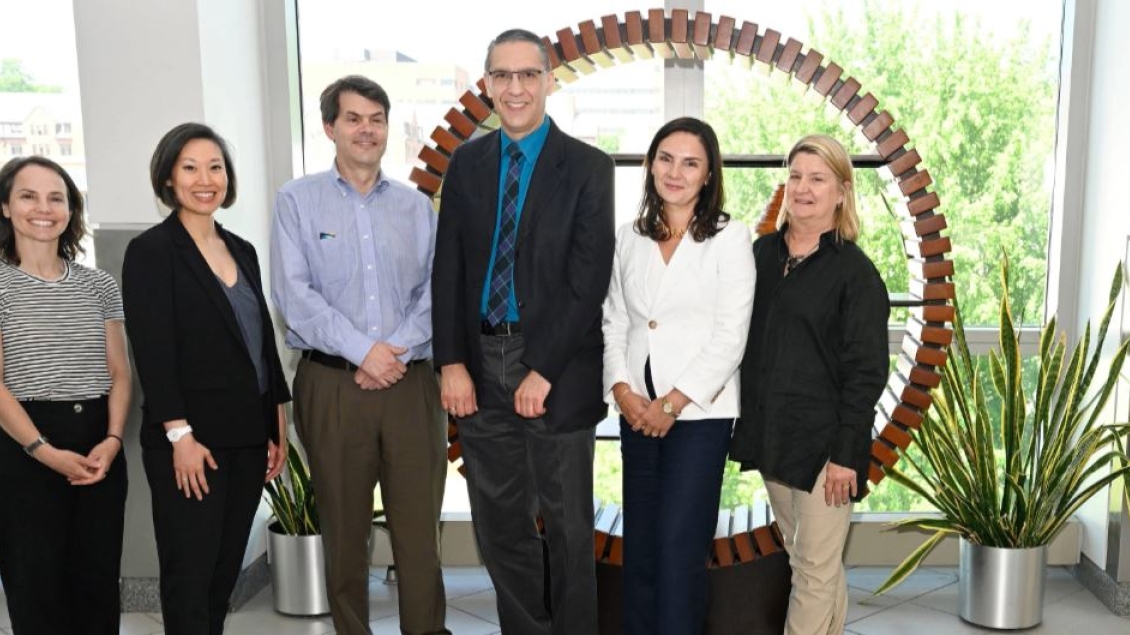
Cutting-Edge Social Science Methods
CBSSM is a collaborative, interdisciplinary group committed to improving individual and societal health through research, education and public outreach. Empirical research in bioethics, decision sciences, shared decision making, and health communication requires a blend of clinical expertise, social science methodologies, and understanding patient and clinician decision-making processes.
Our membership includes both methodological experts (e.g., in online surveys or using clinical scenarios in surveys of medical professionals) and staff who have applied these methods across many different clinical domains. Many of our events (e.g., Working Group) are designed to bring together people from widely varying departments and enable them to learn from each other’s work at every stage of research, from grant proposal conceptualization through study design to dissemination of findings to change behavior and practice. Put simply, CBSSM seeks to be a catalyst that enables cutting-edge interdisciplinary research that simply could not be done without such collaborations.

Learn the goal of CBSSM’s empirical bioethics, decision science, and health communications research.

CBSSM’s Pilot Research Grant Program provides funding for CBSSM-affiliated investigators and fellows to pursue small, focused projects that have the potential to improve health care decisions and the ethical practice of medicine.
Empirical research in bioethics, decision sciences, shared decision making, and health communication is inherently interdisciplinary, requiring a blending of clinical expertise, social science methodologies, and an understanding of the human decision-making processes of both patients and clinicians. CBSSM was founded in part to create an environment in which such interactions and collaborations can take place.
Our membership includes both methodological experts (e.g., in online surveys or using clinical scenarios in surveys of medical professionals) and staff who have applied these methods across many different clinical domains. Many of our events (e.g., Working Group) are designed to bring together people from widely varying departments and enable them to learn from each other’s work at every stage of research from conceptualization of a grant proposal through design of data collection to dissemination of findings to change behavior and practice. Put simply, CBSSM seeks to be a catalyst that enables cutting-edge interdisciplinary research that simply could not be done without such collaborations.
CBSSM does not directly sponsor either faculty or staff research effort (except via the pilot funding program). Nonetheless, numerous research projects both large and small are conducted at CBSSM by CBSSM faculty and staff. These projects reflect both the individual priorities of CBSSM investigators and the synergies that exist within the CBSSM community. While any accounting of such projects will not completely capture the scope of CBSSM research, the following selected examples highlight the range of scholarship that CBSSM faculty and staff are involved in:
- A variety of projects using mixed (quantitative and qualitative) methods to develop, user test, and implement point-of-care clinical decision support tools to support direct oral anticoagulant medication decisions.
- A project evaluating a multi-level intervention including both patient-facing and clinician-facing components for improving patient-centered communication around breast cancer treatment.
- A CBSSM-funded pilot project examining shared decision making in family meetings involving parents and providers regarding tracheostomy decisions in the pediatric intensive care unit and neonatal intensive care unit.
- A project developing and testing a provider-delivered patient education tool as well as health coaching to support patients early in the chronic kidney disease care continuum.
- A project developing a decision aid for reproductive health and pregnancy decision making for women with kidney disease.
- A project integrating behavioral economics and self-determination theory to advance patient engagement in diabetes prevention.
- A project examining the impact of Artificial Intelligence-enhanced clinical decision support (AI-CDS) on the trust of the public.
- A project adapting the CHAT (CHoosing All Together) exercise, which has been used to engage minority and underserved communities in setting priorities for the use of limited resources for health research, health insurance and community, for use in virtual (same time, different place) sessions.
- A project examining the ethical, legal, social, and policy implications of genomic testing programs offered by employers as part of workplace wellness programs.